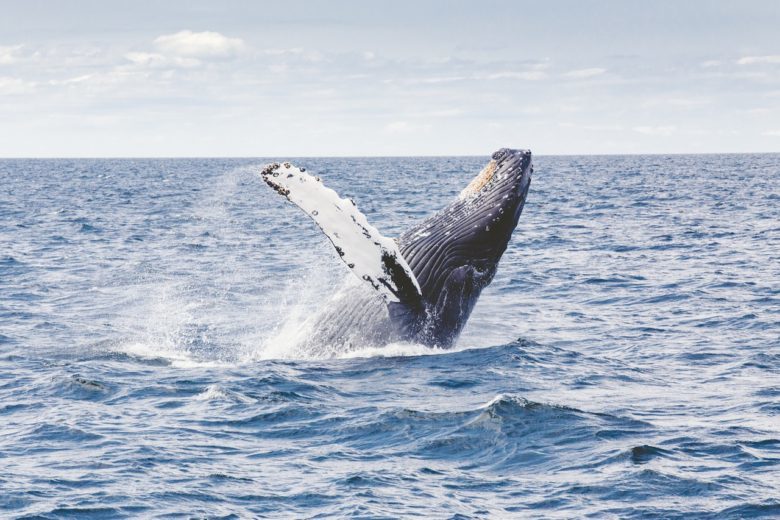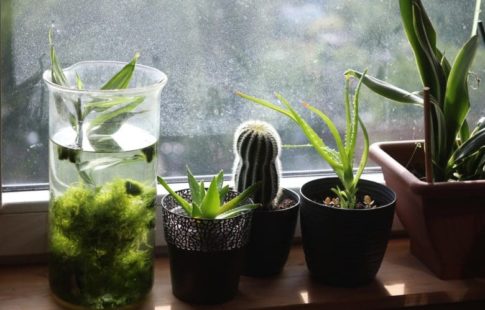
10 Reasons Why Everyone Needs to Go Whale Watching
We are reader-supported. When you buy through links on our site, we may earn affiliate commission.
Going on vacation usually means something relaxing. Most people want to sit by the pool or on the beach, drink in hand, soaking up the sun. But every once in a while, that idea just sounds boring, doesn’t it? Take a chance and do something exciting. Go whale watching! Here are 10 reasons why everyone needs to go whale watching.
1. Spend Money on Experiences, Not Things
First and foremost, going whale watching will benefit you. Numerous studies have shown that people who spend money on doing things instead of buying them get more happiness out of the experience.
This makes sense because the memories of an experience will stay with you for a lifetime, while a thing that you bought eventually just blends in with the background of your life. Your enjoyment of an experience increases or stays steady over time, but a thing is likely to just stop being enjoyable.
2. It’s a Thrill
No matter how prepared you think you are, you’re never really ready to see a whale. If you get really fortunate and see a pod, then you’ll be flabbergasted by the sheer enormity of them. Speaking from experience, it’s almost impossible not to be overwhelmed and then almost instantly terrified!
If you can get over that initial shock, grab your camera and get the shots. Then put it down and just let yourself stare at them. None of the pictures will do it justice, so burn the site into your memory.
3. Tick off a Bucket List Item
Many travelers have whale watching as a bucket list item. If you don’t have it as one, you should!
A bucket list gives you goals to work toward, beyond education and career, which are fulfilling in their own right. Checking items off can help you work toward your life goals and help create the blueprint for the kind of life you want to live.
4. Help out the Locals
Whale watching isn’t just good for you. It’s good for the locals as well. Many places that have whale watching also depend heavily on tourism. Local fishers can often only fish during their season, and money might run tight when that season is over.
If they’re working with a good company and have a safe boat, going out with the locals can let you in on parts of the area you never would’ve known about otherwise. You can also put money and food into the pockets of the people who live there and depend on the ocean and its inhabitants for their livelihood. No one knows the value of the water more than the people who live on it.
5. You’ll See More Than Whales
When you’re going out on the ocean, you never really know what you’ll see. Doing some extra research before you leave can make the difference between a dull ride out and an exciting one. Look up the whales that are likely to frequent the area.
If you’re off the northwest coast of the U.S. and Canada, you’re probably expecting to see Humpbacks and Orcas, but keep an eye out for other species, too. Seagulls are often a dead giveaway for an area where whales will be, and dolphins might tag along as well.
6. Never Too Old to Learn
It doesn’t matter if you’re eight or 80, whale watching is a chance to learn and experience something new. That’s good for your brain in a lot of ways. You might notice that time seems to slow down while you’re on the boat. You’ll come back from an hour ride feeling like you left a lifetime ago.
Your brain automatically tries to collect all the information when you’re exposed to new things, so instead of going on autopilot, you’re paying attention to everything. Strong emotions develop synapses instantly, so you’re growing your brain even as you’re excited, terrified or moved.
7. Learn How to Help the Animals
When you’re going whale watching, the guides on your boat won’t be standing there silently. Any good tour will be filled with information. On our trip, the guide didn’t just talk about the animals. She told us all about the oceans, the currents, how they were changing with the climate and that the Arctic waters were some of the first to show distress.
It helped drive the point home that our children may never be able to do this, so we have to do more to protect the planet.
8. Promote Eco-Tourism
Tourism, in general, can have a terrible effect on the local people and the native wildlife. Eco-tourism seeks to avoid that, while still bringing in visitors. The tourism of the ocean has some issues, though. The boats and people can disrupt the lives of the whales, which can stress them out and actually put the lives of the pod members at risk.
For that reason, you need to choose a company that has strict guidelines for how they interact with the whales — no feeding, no touching and trips that aren’t too frequent. That helps the company keep the whales around, and it helps the whales themselves to flourish.
9. Tell Everyone
I mean, you’ll want to. You’ll probably tell strangers about it at dinner that night and anyone who sits near you at breakfast. You’ll plaster pictures of it on your Facebook page and call your best friend. Do it! Tell them all!
Tell people how great it was and how much you learned and how terrifyingly thrilling it was. Nothing will get people interested in environmental activities like passion, and you’ll be full of it for years.
10. Gain a New Respect for the Oceans
Nothing, and I do mean nothing, will help you learn to love the oceans the way being on them will. It’s just like this quote from Sylvia Earle says: “No water, no life. No blue, no green.” You’ll never forget just what the blue means.
Whale watching isn’t something you should miss. Go out, book a trip and tell some people. You’ll never regret it.
Share on
Like what you read? Join other Environment.co readers!
Get the latest updates on our planet by subscribing to the Environment.co newsletter!
About the author

Jane Marsh
Starting from an early age, Jane Marsh loved all animals and became a budding environmentalist. Now, Jane works as the Editor-in-Chief of Environment.co where she covers topics related to climate policy, renewable energy, the food industry, and more.





